Escort - powered by MAZDA
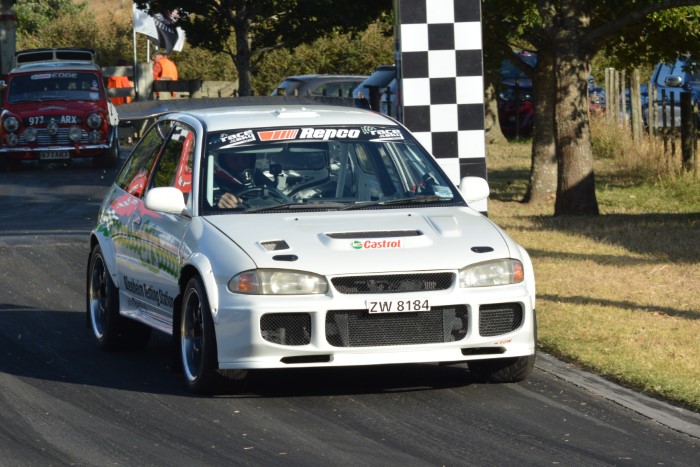
Escort - powered by MAZDA

[QUOTE=ERC;72308]
The hockey stick as shown in the photo, does not guarantee an accurate recorded time and deciding a winner and depends on the starter placing it uniformly in front of the wheel for each competitor. The first inch or two travel takes longer than one would expect. Some 65 years ago, I built communication and timing equipment for the Northern Sports Car club and took this factor into account.
Brings back memories of the task task of setting things up at every speed event and in particular a specific hillclimb at Ostrich Farm Road.
At a pre-event committee meeting, we decided that this time there would be no delay in getting things started. We set up everything the night before, and for good measure I slept overnight in the club caravan. On waking early in the morning, from within the caravan, I checked the cable which we had run down the hill, and was horrified to find an open, as well as a short circuit. I learned that sheep love plastic and a short length run inside a fence had provided breakfast. LOL, but not at the time!
LOL. Re hockey sticks. That is why the UK system using a beam, was that they would only time to 0.1 unless you had a 'beam breaker' fitted and timing was then to .001. The hockey stick was usually replaced by a chock to stop the car rolling forwards or backwards.
Incidentally, I used to get so frustrated in NZ, waiting around whilst cables were laid, and the limitations of one car on a long hill at a time, that I scrapped the cable system altogether for a series of sprints at Pukekohe and also at the Otaua Hill Climb back in about 1990/91.
Pukekohe - Sprint 1. Open radio at the start. "Car 22, Mini - 3 - 2- 1 go". At the finish line, two or three watches. Car number 23 despatched as soon as 22 was 15 seconds up the road - or past a marshal point.
Three cars on the course at a time, then once past the finish line, joined the queue for the next section, Sprint 2, in other words, two sprints running at the same time. Then the same two tracks run in reverse in the afternoon, giving 4 tracks in a day.
Sure, not as accurate as electronic timing but good enough to get through over 600 runs by 3pm at Pukekohe or six runs per competitor by 3pm at Otaua. For a 'fun' event, more than good enough.
Last edited by ERC; 03-04-2020 at 12:49 AM.
[QUOTE=Trevor Sheffield;72314]Trevor, " The Hockey Stick "- story - would like to put that on the Northern Sports Car Club thread - would also like to know a bit more about the NSCC Hill Climbs.
I knew or have learnt a bit about the Clubs Roads - and to put them in order
Ostrich Farm Road
Birdwood Road
Wharepapa Road
later Cosseys Farm - 1967 on - when I had just joined the Club
Birdwood and Wharepapa have got information from Bob Homewood, supported by others.
Would enjoy you relaying any more stories and details.
Cheers
Roger
I can not agree that a beam at the start results in accuracy. The recording device can be accurate to many decimal points but this has no bearing on the issue. A beam set up is likely to result in an even longer run up and is also affected by the frontal aspect of each car of very real consideration at the start, but not at the fish due to the road-speed factor. The hockey stick involving the operation of a simple contact is superior in every respect and can be arranged to operate almost instantly the car moves.
My system was quite sophisticated in that the two stopwatch operating solenoids were operated by capacitor discharge, as a means of guarding against even the very slight possibility of contact bounce ,given that a micro switch was employed.
Subsequent to building the NSSC gear I established my own Company building electric/electronic industrial control systems and had secured the NZ agency for Hird Brown Ltd, UK manufactures of motor sports timing gear, I was not impressed and am well aware of what is used overseas.
Simplicity is the key, particularly in respect of club events. I can not see how that used any the Vintage Car Club at their Chelsea hill climb can be bettered from every practical point of view. A CB handy-talkies at the start and finish, enabling a flag drop and a loud shout "go", to be monitored by a reliable time keeper starting a stopwatch to be stopped as the car crosses the finish line. This simple arrangement surely provides truly competitive sport. I gather that you describe a similar system.
Unfortunately in my day, CB radio or model control frequencies were not available and we we were stuck with the substantial nuisance of running out coppers wire. Ham bands were considered but ruled out as not being practical due to overriding interference. Digetally coded signals would have been a pipe dream LOL.
The British Hillclimb and Sprint championships have use the beam breaker for years. The cars have to have a 'beam breaker' plate at the front and this is lined up at the start line by lights. Good enough I would have thought. As I posted earlier, if you competed without the front plate, timing was only to 0.1 seconds.
I'm guessing it came in at the beginning of the 1971 season based on these two pics, both taken at Prescott.
1970
1971
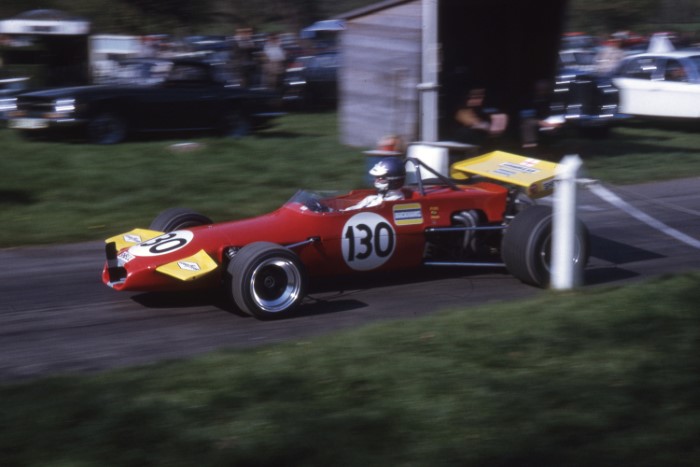
It would appear that the system's obvious limitations were overcome by including complications which can not be popular with competitors. The restricted width of what amounts to a starting gated is noted and I would judge a necessity.
A very significant disadvantage is that it requires accurate positioning of the vehicle rather than the starting device, which can cause frustration and delay.
I would be interested to learn as to how this costly and complicated set up is superior to the simple, coast effective and accurate hockey stick system, which is portable and can be used at any venue regardless. Just how is this beam system, which requires an addition to competing cars, more accurate in respect of electrically recording the start from standstill ?
Trevor, I put a beam breaker on the Buckler for under £2, yes two quid just a year or so back, and removed if needs be in about 2 minutes. I have yet to see anybody object, and the system is about as big as a suitcase to move around, wireless now too.
The point is Trevor is that putting the hockey stick under the wheel means the distance from the front of the car is variable. The cars using a beam breaker are all lined up with the breaker at the very front of the car and the finish line beam is also broken by that same device, so all cars are equal in terms of distance travelled.
The system has, as I said, been in place for 50 years and if there was anything more accurate, don't you think they'd be using it, given these are championship events?
We now have transponders in race cars but their position within the car's structure is never checked, so in the event of a dead heat, a transponder timed dead heat is reliant on the location of the unit - but savvy timekeepers or CoC's can look at a video of the race finish if required.
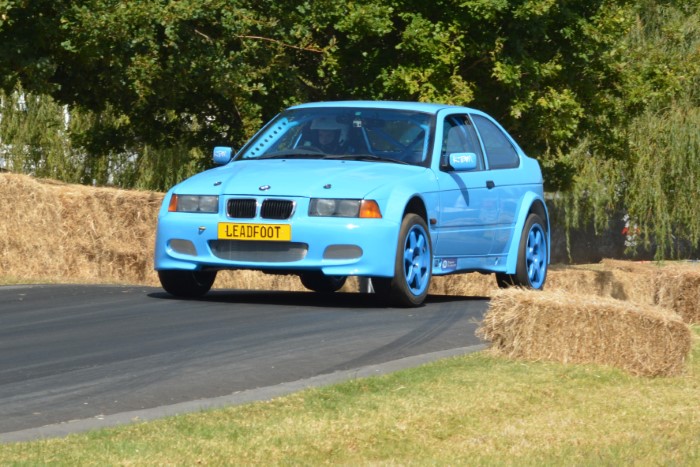
Another dig into the archives... Apologies if any have been shown before.
1972 Curborough
1987 Donington
2004 Donington
2004 - Pukekohe - Reynard
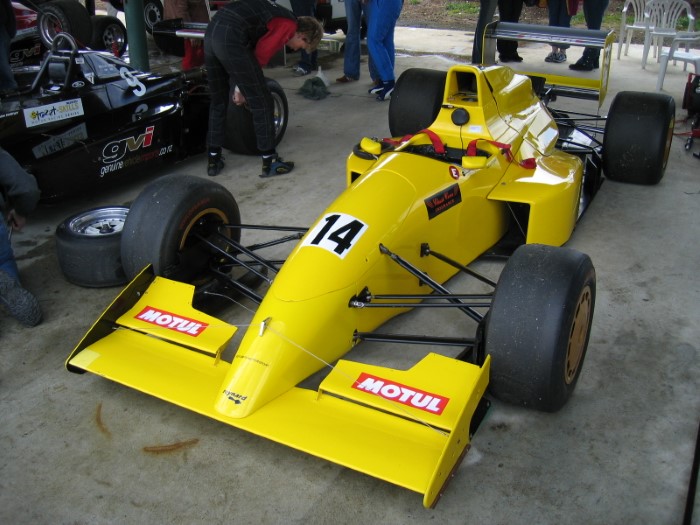
[QUOTE=ERC;72339]The point is Trevor is that putting the hockey stick under the wheel means the distance from the front of the car is variable. The cars using a beam breaker are all lined up with the breaker at the very front of the car and the finish line beam is also broken by that same device, so all cars are equal in terms of distance travelled.
The system has, as I said, been in place for 50 years and if there was anything more accurate, don't you think they'd be using it, given these are championship events?
Correctly used the front of the car is lined up with the start line while the contact making device is placed under a wheel, front or rear.
Having gained formal tenders for extensive industrial control systems and industrial alarm panels, on the basis of technical merit as well as cost, against long standing overseas manufacturers, I believe that a Kiwi has the knowledge and experience to correctly consider all off the detail involved.
Both systems can be equally accurate dependent on the human factor, but the direct contact system wins on the basis of operator understandable simplicity of use and set-up; adaptable to any venue without extra facilities; absolute portability; a power source is not required and certainly not on on both sides of the road; simple and understandable maintenance. The advantage in respect of cost is obvious.
All without reliance on the each competitor having to cater fo the shortcomings of the device. In my book this single aspect renders the light-beam design, not fit for purpose.
Last edited by Trevor Sheffield; 03-09-2020 at 06:11 AM. Reason: Typo.
Your opinion Trevor, but the system is simple, as you roll up and the light shows that the car is correctly positioned.
It takes no time at all and bear in mind, the car isn't going to set off until the car ahead is clear anyway.
No guesswork as to where the front of the car might be. A hockey stick and guesswork and bearing in mind the nose shape of a car such as an E type Jaguar as opposed to an Austin A40, means that if accelerating out of the last bend as at Loton Park for example, the nose lifts and goodness knows what part of the car would break the beam.
As I said, I'm sure that if there was a better and more accurate system than that used by the UK Championships, they'd use it.
Subject closed. Back to photos...
Last edited by ERC; 03-09-2020 at 06:13 AM.
2012 - Surtees (Monaco)
Token
2017 - Trojan
2018 - Williams
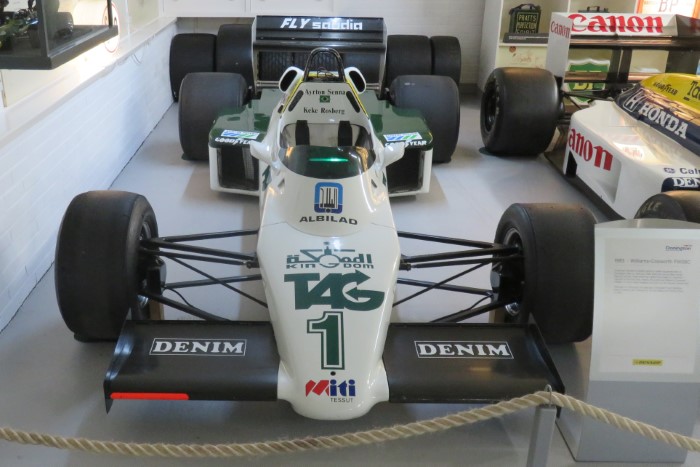
2018 - I wonder when we'll see the likes of the Donington exhibits again? I'll possibly do the Silverstone Experience in September if I can squeeze it in. Also a return to the Caistor Castle museum is pencilled in for September 8th, now they allow photographs.
Last of the Leadfoot pics, just to clear my 'to be filed folder' from the event
1970 - Prescott
2004 - Goodwood
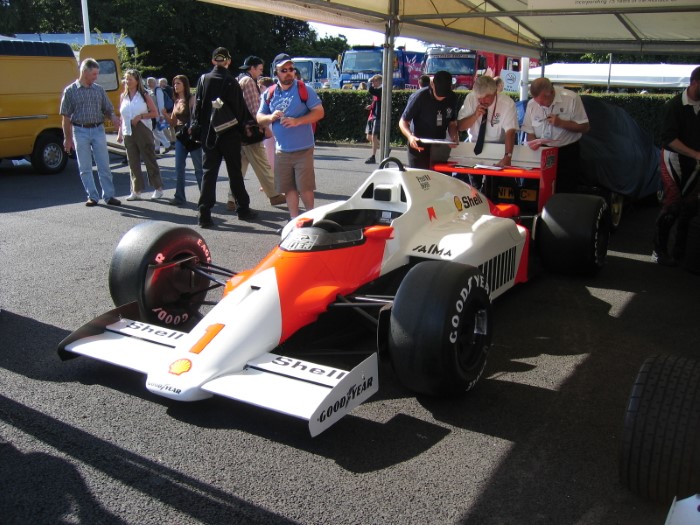
Last edited by ERC; 03-13-2020 at 01:04 AM.
2012 - Modus
McLaren & MARCH
2014 - McLaren - National Motor Museum Beaulieu
2018 - MARCH - Final visit to the Donington Museum
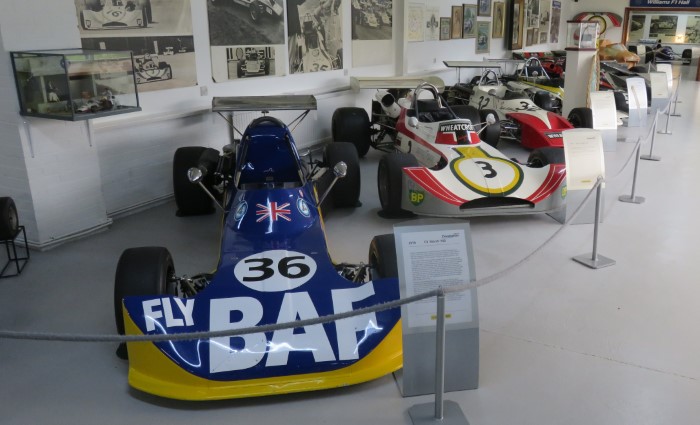
2004
2012 - Tec Mec
Techno
Theodore
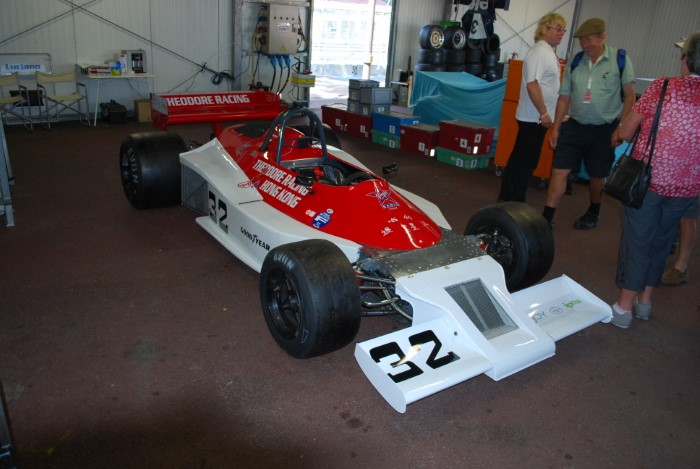
From what I can gather Kevin, left over 250F 2.5 litre engines. It was for sale at Bonhams with the original engine not fitted but as part of the deal, but the one fitted had to be bought as a separate deal. Only raced in one GP 1959 US GP (DNF) but apparently now is really well sorted and wins occasional historic races. Someone may like to confirm this but I believe this is the only one built and may also tell us what the story on it's NZ adventure was.
Last edited by Allan; 03-16-2020 at 09:02 PM.
As above. All I know is that I first saw it in the Donington Collection, right from when it opened. In recent years, saw it in action at Monaco 2012 and also at the Goodwood Revival, so it must have been sold from the collection some time ago, unless it was on loan.
Totally agree with Allan in that it seems very well sorted these days.
From my copy of the book 'Great Racing Cars of the Donington Collection', by Doug Nye with Geoffrey Goddard (signed by Doug & Tom Wheatcroft, on my birthday 1976...).
The car was designed by Valerio Colotti who had the drawings when Maserati packed up racing in 1958. An engine and gearbox from an early 250F were fitted.
After the US GP it raced once at Daytona and then languished in a Florida garden (honestly!) until the late 1960's when it was rescued by Tom Wheatcroft. He had it restored and apparently it did take part in historic events.
Love one offs and less well known cars in any category. For years, F1 was open to privateers and many GP's featured local drivers in cars that sometimes were competitive and sometimes weren't.
The modern age of F1 limited to cars that look, sound and perform the same, has very little interest to those of us lucky enough to have some experience of F1 almost from when it started in 1950, certainly, we are lucky to have been able to experience those cars on track. Looking forward to the Revival (Covid19 not withstanding...) and really hoping that Duncan Ricketts has the Parnell there.